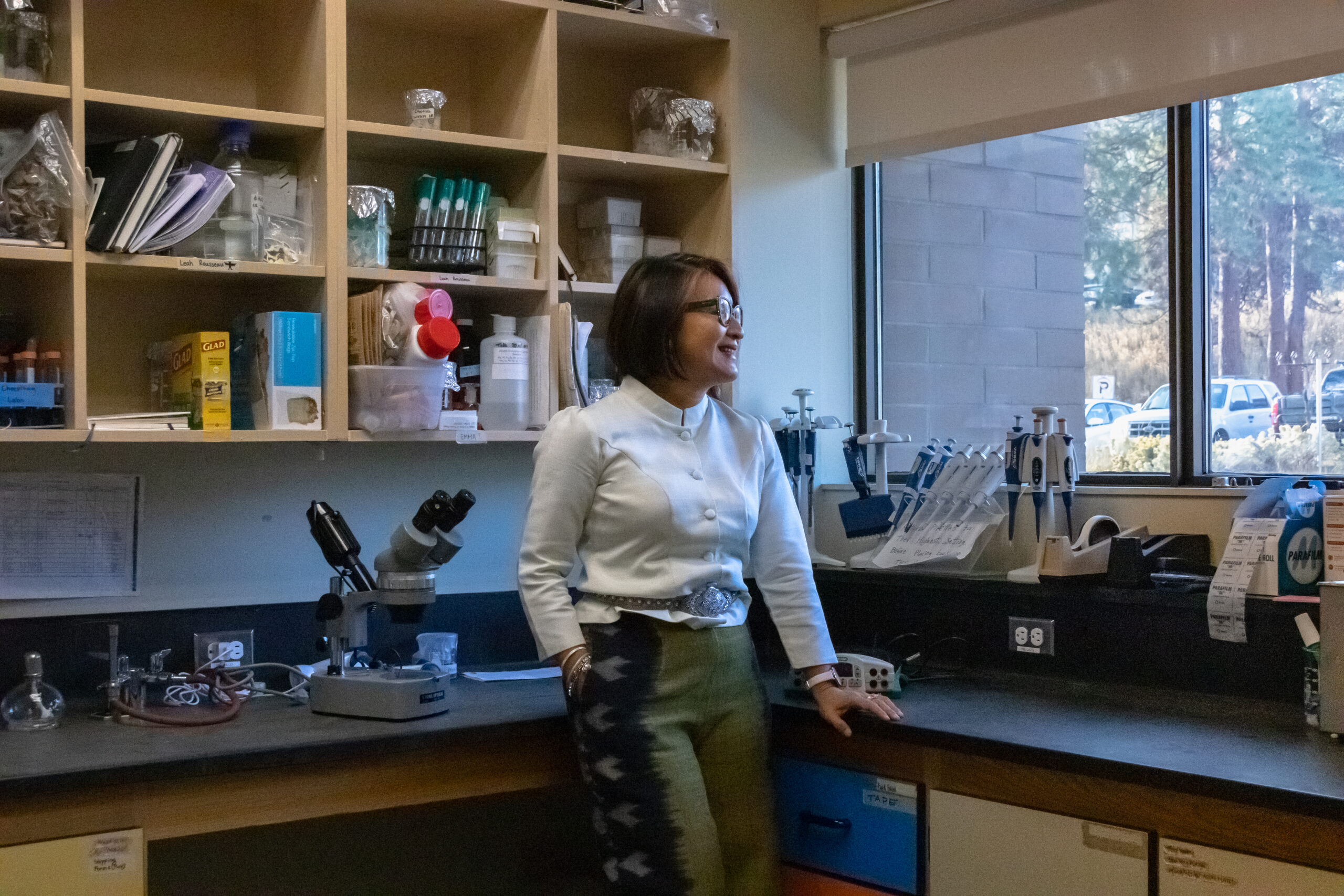In academia, it’s easy to get lost in awards, titles, and research papers, but the professors who leave a lasting impact are the ones who let their personality shine through. Whether Naowarat (Ann) Cheeptham is in a muddy cave, a kitchen cooking miso soup, or a classroom telling jokes, Cheeptham’s passion for life is as strong as her passion for science.
Cheeptham is internationally recognized for her pioneering research on cave microbiomes, drug discovery, and the fight against multidrug-resistant infections. Her work has been featured in outlets such as The New York Times, WIRED, and CBC’s Nature of Things, and she has earned honours including the 2022 3M National Teaching Fellowship, the TRU Faculty Excellence Award, and the D2L Innovation Award in Teaching and Learning. Away from the lab, Cheeptham finds balance through a wide range of activities.
“I love to be active,” Cheeptham said. “Hiking, biking, snowshoeing, paddle boarding, dancing, skiing—both downhill and cross-country. I’m even certified as a cross-country coach for the bunny rabbit program. I go to barre class, love cooking [and] eating, taking pictures, reading, travelling, and learning new things. This fall, I even joined a rock choir.”
For Cheeptham, dance is a bridge between culture and individuality. The classical style connects her to her heritage. Free dance, meanwhile, gives her the space to move like a spirit unbound.
The variety of her hobbies speaks to the same curiosity that fuels her work. She doesn’t just teach science—she lives it, in motion and in colour. That joy follows her into the muddiest parts of her research.
“My research is in caves—I don’t look like this every day. I look muddy when I go with my students,” Cheeptham said.
Cheeptham is the first to admit she doesn’t want her lectures to feel dull. If students look bored, she doesn’t see it as failure, but rather a chance to switch gears. And usually, she told the Omega, that gear is comedy. The same quick wit that wakes up a classroom is what fuels her half-serious dream of one day taking the comedy stage.
Behind her personality is a story shaped by resilience and chance.
“I didn’t come from wealth,” Cheeptham said. “In Thailand 50 years ago, the gap between the rich and poor was huge. The only way to improve your socio-economic status was through education. Education was a privilege; not everyone could go to school.”
Cheeptham’s parents were elementary school teachers, and her grandparents worked the rice and sugar cane fields.
“On weekends, we were dropped off to help them. My grandma would cook, and I had to carry food for the workers in the field. We also had to take the water buffalo to the river. I basically grew up with the trees,” Cheeptham said.
Her father, who earned his biology degree in his forties, exposed her to science.
“He would take me to collect samples of butterflies and insects. I just kind of fell into biology,” she said.
At 15, Cheeptham won a Thai government scholarship awarded to only 25 students nationwide.
“The government would send me anywhere in the world for my PhD, but I had to return to Thailand to be a professor. I already had a position waiting for me,” Cheeptham said.
But life had other plans.
“When I was about to finish my bachelor’s degree, I received another scholarship from the Japanese government. This time there were no strings attached, and I could study my master’s and PhD for free. That gave me a chance to study in Japan…and it’s where I met my husband, who is Canadian. I hadn’t planned to live and work in Canada. Sometimes you just cannot plan your life,” Cheeptham said.
Her philosophy on life is summed up in a Japanese saying, “Shiawase wa itsumo jibun no kokoro ga kimeru,” which means that your happiness is always determined by your own heart.
“Happiness is a choice, and you are the one who makes it happen,” Cheeptham said.
That lesson resonated deeper after a ski accident left her with a brain injury. “For too long, I tried to fit in and be ‘nice.’ But I realized being kind is not the same as being nice. Kindness is about respecting yourself and others, not seeking validation. That’s what I want the younger generation to understand.”
Her advice to students is simple but powerful.
“Believe in yourself, be yourself, and don’t let societal constraints diminish you. If someone doesn’t like you, that’s okay. They are not your people anyway.”


Wow! I would have loved to be in her class.